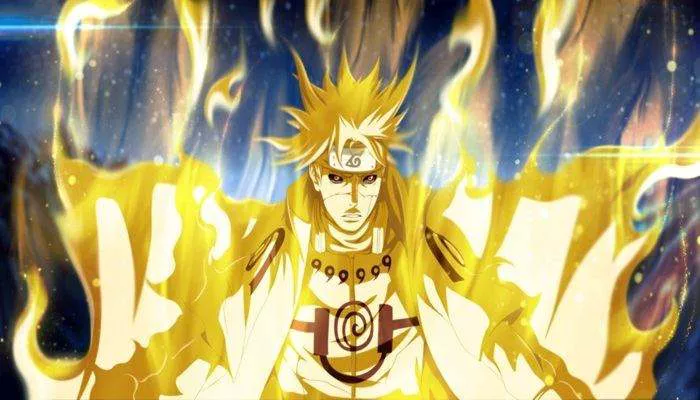Naruto Uzumaki, the protagonist of the widely popular Naruto series, is known and loved for his iconic last name. However, a common question among fans arises: Why is Naruto named Uzumaki and not Namikaze, which is his father Minato’s last name? This article delves into the reasons behind this unconventional naming choice, exploring the historical context, safety concerns, and the significance of the Uzumaki clan within the Naruto universe.
The Basics of Japanese Naming Conventions
In traditional Japanese naming customs, children typically inherit their father’s surname3. This practice ensures the continuation of family lineage and identity. Given that Minato Namikaze was Naruto’s father, the logical expectation would be for Naruto to carry the Namikaze name. However, several compelling reasons led to the decision to name him Uzumaki instead.
The Threat of Minato’s Enemies
Minato Namikaze, also known as the Fourth Hokage, was a formidable ninja who earned numerous enemies during his lifetime3. His exceptional skills and contributions to the Hidden Leaf Village made him a target for vengeful opponents. Associating Naruto with the Namikaze name would have exposed him to significant danger from those seeking to harm Minato’s legacy.
Protecting Naruto from Assassination
The Third Hokage, Hiruzen Sarutobi, recognized the potential threats and took precautionary measures to safeguard Naruto’s life. By giving him his mother Kushina’s surname, Uzumaki, Hiruzen aimed to conceal Naruto’s connection to Minato and protect him from potential assassination attempts.
The Uzumaki Clan as a Shield
The Uzumaki clan, while once revered for their sealing jutsu and immense chakra reserves, had largely faded into obscurity by the time of Naruto’s birth. The clan’s near extinction made the Uzumaki name a perfect cover for Naruto’s safety. The Third Hokage understanding that the name Namikaze would make Naruto a target, made the decision to use the Uzumaki name to keep Naruto safe.
Significance of the Uzumaki Clan
Despite its decline, the Uzumaki clan held a significant place in the Naruto world, further justifying the choice of surname.
Powerful Sealing Techniques
The Uzumaki clan was renowned for its mastery of sealing techniques, which were crucial in containing powerful entities such as the tailed beasts. Kushina Uzumaki, as a member of this clan, possessed the unique ability to suppress and control the Nine-Tails, making her an invaluable asset to Konoha.
Connection to the Senju Clan
The Uzumaki clan also had deep historical ties to the Senju clan, one of the founding families of the Hidden Leaf Village. This alliance between the Uzumaki and Senju clans further solidified the Uzumaki name as one of respect and importance.
Naruto’s Character Development
Naruto’s difficult childhood, marked by the absence of his parents and the burden of the Nine-Tails, shaped his character and drove his ambition to become Hokage.
Overcoming Adversity
Growing up as an orphan and being ostracized by the villagers, Naruto faced numerous challenges. However, his determination and unwavering spirit allowed him to overcome these obstacles and earn the respect of his peers. Naruto’s tragic past made him stronger, although alternative versions of Naruto, named Menma, who didn’t lose their parents, were shown to be stronger at an earlier age.
Earning the Respect of the Village
As Naruto matured, he demonstrated exceptional strength, resilience, and a strong desire to protect his friends and village. His heroic actions during the Fourth Great Ninja War solidified his position as a beloved figure in Konoha.
The Impact of Personal Loss
Personal loss played a significant role in shaping Naruto’s character and driving his ambition.
Jiraiya’s Death
The death of Jiraiya, Naruto’s mentor, had a profound impact on him, exposing him to the harsh realities of the ninja world. This loss motivated him to become stronger and protect those he cared about.
The Value of Friendship
Naruto’s ability to form meaningful bonds with others, despite his difficult past, highlighted the importance of friendship and compassion. His friendship with Gaara, who had a similar upbringing, demonstrated the power of understanding and acceptance.
The Namikaze Legacy
While Naruto carried the Uzumaki name, he also inherited many traits from his father, Minato Namikaze.
Natural Talent
Naruto possessed a natural aptitude for ninjutsu, similar to his father. His ability to master complex techniques and develop innovative strategies reflected the influence of the Namikaze lineage.
Determination and Resolve
Like Minato, Naruto displayed unwavering determination and a strong sense of justice. His commitment to protecting his village and upholding his ninja way mirrored his father’s values.
Conclusion
In conclusion, Naruto Uzumaki’s name is a result of several interconnected factors, primarily rooted in the desire to protect him from the enemies of his father, Minato Namikaze. The Third Hokage’s decision to give him his mother’s surname, Uzumaki, served as a means of concealing his true identity and ensuring his safety. Furthermore, the historical significance and unique attributes of the Uzumaki clan added another layer of meaning to this choice. While Naruto inherited the spirit and determination of both his parents, his journey as Naruto Uzumaki shaped his character and solidified his place as one of the greatest heroes in the Naruto series.
Related topics:


